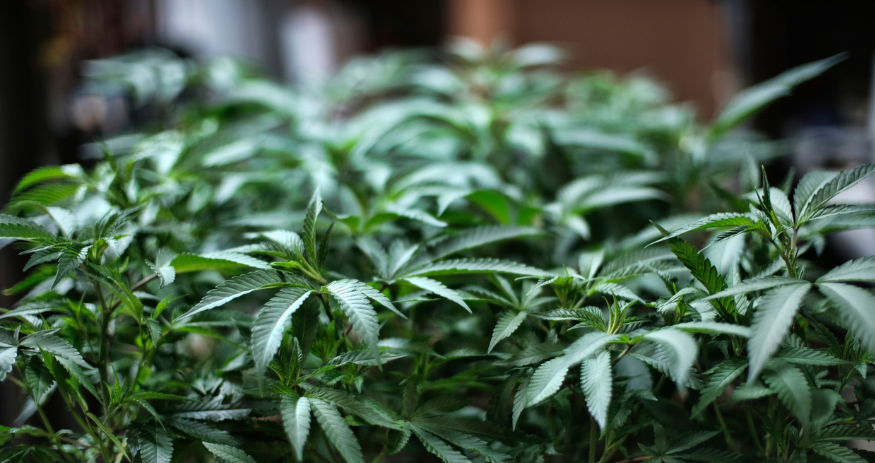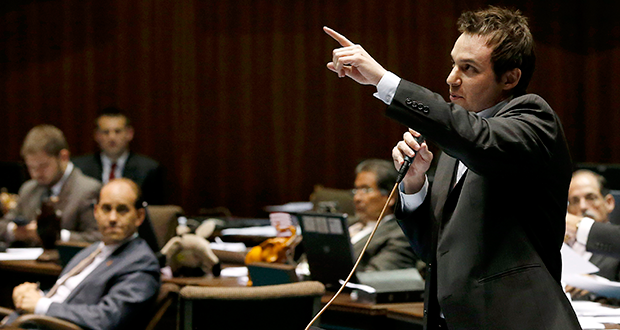Court rules driving after consuming marijuana is OK – sometimes
Howard Fischer, Capitol Media Services//October 2, 2024//
Court rules driving after consuming marijuana is OK – sometimes
Howard Fischer, Capitol Media Services//October 2, 2024//
Simply driving with marijuana in your system isn’t enough for the state to suspend someone’s license, the Arizona Court of Appeals ruled Oct.2.
The judges rejected arguments by the Motor Vehicle Division that a blood test showing metabolites of the drug is sufficient to prove a claim by the agency that there were grounds to believe that Aaron Kirsten was driving “under the influence” of the drug.
Appellate Judge Andrew Jacobs, appointed by Gov. Katie Hobbs and writing for the unanimous court, said when voters legalized marijuana for recreational use in 2020, they spelled out in Arizona law that the state may impose penalties on drivers – but only if it can first show that person is “impaired to even the slightest degree by marijuana.”
“But that was not the case here,” Jacobs said. “Instead, the state claims it can suspend Kirsten’s privilege of driving for his prior use of marijuana, as evidenced by metabolites of cannabis in his blood, without any impairment.”
In some ways, the ruling is not a surprise. The Arizona Supreme Court in 2014 barred the state from bringing criminal charges of driving while impaired against a medical marijuana user, absent proof that the person was affected by the drug.
This case is significant in two ways.
It is believed to be the first appellate court ruling on the issue since voters expanded the legal use of the drug from not just those with a doctor’s recommendation – what was permitted in the 2010 voter-approved medical marijuana law – but to any adult.
And it also extends the protections for marijuana users not just against criminal charges of driving under the influence of the drug but protects them against this kind of administrative suspension of driving privileges by the Motor Vehicle Division, something the agency can do without getting court approval.
The whole issue comes down to a mix between medicine and politics.
According to court records, Sedona police stopped Kirsten in 2022 for speeding. The officer reported that he had bloodshot, watery eyes, slurred speech and was unsteady on his feet.
Kirsten refused to take a standardized field sobriety test, though a preliminary blood test showed a blood-alcohol content slightly above the 0.08% that is a presumption for intoxication. But an actual blood draw came back below that number.
A DPS forensic scientist also analyzed the blood for drugs and found some presence of THC, the psychoactive ingredient in marijuana.
At an administrative hearing, Kirsten testified he had not used marijuana within 24 hours of the traffic stop. And he had testimony from a chiropractor and nurse practitioner that THC – or at least the metabolites of the drug, meaning the chemicals produced when the body breaks it down – can stay in a person’s system for weeks.
The hearing officer suspended Kirsten’s driving privileges for 90 days, a decision that was upheld by Coconino County Superior Court Judge Stacey Lynn Krueger.
The politics of it all, according to Jacobs, come in with what voters enacted.
That statute, said the appellate judge, says Kirsten could be found guilty of driving with metabolites of marijuana in his blood only if there was a finding he was “also impaired to the slightest degree.”
“This reinforces our understanding of the voters’ intent, expressed through their enactment of Proposition 207, that unimpaired driving after consuming marijuana cannot be penalized,” he wrote.
In this case, Jacobs said, the state was seeking to impose a penalty on Kirsten “for reason of his otherwise legal use of marijuana.”
The appellate judge also said the law says the state cannot “abrogate or limit any right or privilege conferred or protected by the laws of this state.” And driving, he said, is definitely a privilege.
“The design of Proposition 207 is unambiguous,” Jacobs wrote. “The slightest degree of impairment is required before the state may punish prior marijuana use.”
Nor was the appellate court swayed by the fact that all this was enacted not by the Legislature but by voters. In fact, Jacobs said, the reverse may be true.
“Courts must not intrude on the people’s power to legislate,” he wrote, citing prior Supreme Court rulings. And he said that “voter-enacted laws are even more consequential than those enacted by the Legislature.”














































